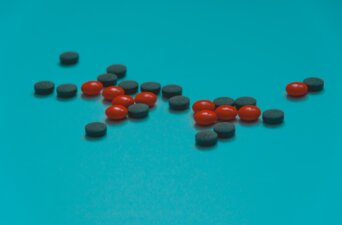- About
- Topics
- Picks
- Audio
- Story
- In-Depth
- Opinion
- News
- Donate
-
Signup for our newsletterOur Editors' Best Picks.Send
Read, Debate: Engage.
| topic: | Health and Sanitation |
|---|---|
| located: | India |
| editor: | Hanan Zaffar |
For weeks, people with Human Immunodeficiency Virus (HIV) have been protesting in India's capital for the lack of essential medicines at government-run treatment centres. This has raised concerns in the country with 2.4 million HIV patients, the majority of whom obtain their free medications from state-run antiretroviral therapy (ART) centres. Since these life-saving drugs are extremely important for patients, they are forced to obtain them from the market at higher prices while the authorities experience delays in procuring these essential medicines.
Over the last decade, certain antiretroviral regimens (ARVs) have improved the lives of HIV patients in India. The majority of HIV positive people are treated with tablet TLD, a combination of three antiretroviral drugs: tenofovir, lamivudine and dolutegravir. In India, these medications were mostly made available through the National AIDS Control Organisation's (NACO) ART centres.
NACO is a central government agency that provides drugs, diagnostic tools and training for people living with HIV. The ART centres are spread across the country and provide patients with necessary medications which are otherwise too expensive on the market. The majority of patients who cannot afford the drugs from the market obtain them from these centres. A single tablet of dolutegravir, for example, costs 117 rupees on the market, but NACO produces it for 6.67 rupees and makes it available for free at its ART centres.
However, the country has been experiencing a shortage of these life-saving drugs in recent months due to NACO's inability to obtain medicines on time. As a result, the majority of patients who rely on free medicines provided by ART centres struggle to adhere to their medication regimens, which is critical for HIV patients. After a blacklisted company won the bid to purchase these drugs, the procurement process was halted in December last year. Since then, the authorities have yet to complete the procurement process. Following the delay, NACO requested that these drugs be obtained by the individual states for the patients.
With each state now responsible for its own medical needs, the situation in many areas has deteriorated. Unlike states, NACO would purchase these drugs in bulk, making it a more convenient and cost-effective purchase. Furthermore, many states are facing budget constraints in this area, placing a strain on patients.
Patients are even being asked to switch to different medications. As a result, they are either forced to take alternative medicines, which have a negative impact on their health, or are coerced to go above and beyond their financial constraints to obtain medicines at exorbitant prices. This makes treatment only available to those who can afford it. Patients with less financial means, on the other hand, have to fend for themselves.
At this point where patients are preferring to drop out of the treatment, NACO needs to establish a fresh tender to procure the drugs and fill the stocks in the government-run centres. While NACO's system is nearly perfect in a country with a large population of people who cannot afford drugs at market prices, delays in the supply chain will harm thousands of patients. NACO's ART centres provide the best possible care for these patients, however, the government must ensure that these drugs are available on a consistent basis, that the procurement and bidding processes run smoothly and on time, and that supplies at ART centres are available on a regular basis.
Another measure in the right direction could be buying the drugs from NGOs working on this issue to ensure that patients do not have to suffer. The northeastern state of Manipur provides a good example as the state government obtained drugs with the help of non-governmental organisations to help patients.
In a country with more HIV patients than the population of Macedonia, authorities must ensure that patients who rely on them for essential medicines are cared for.
Photo by Christine Sandu

